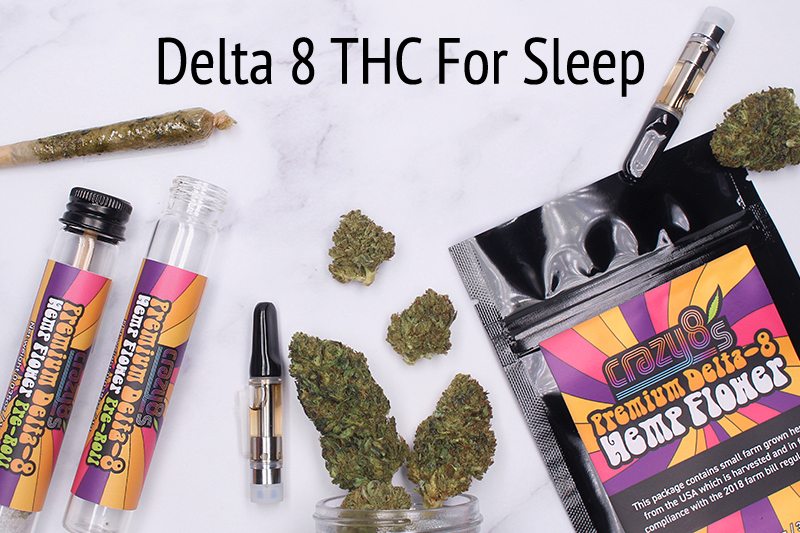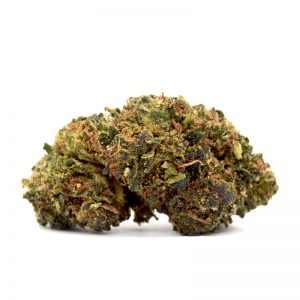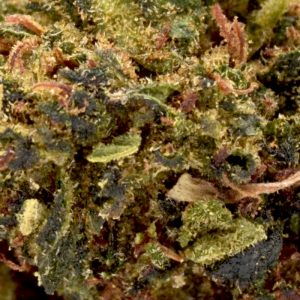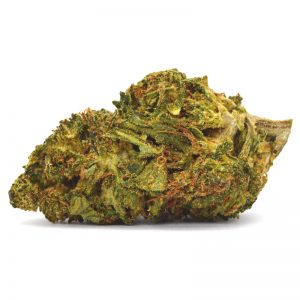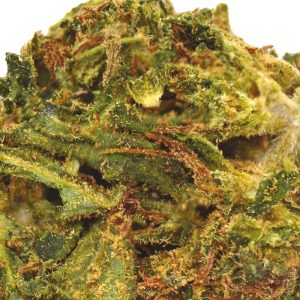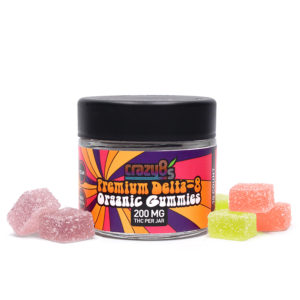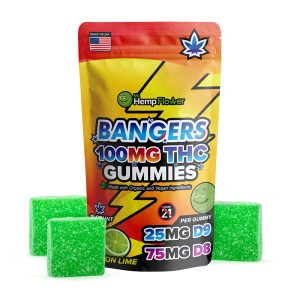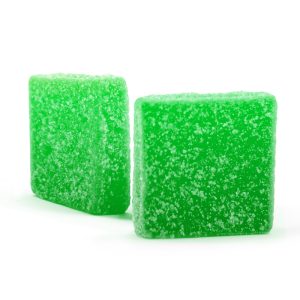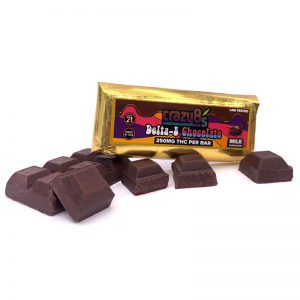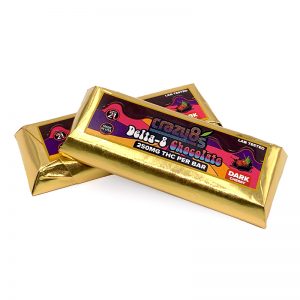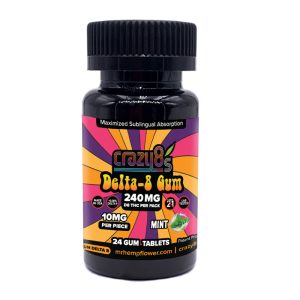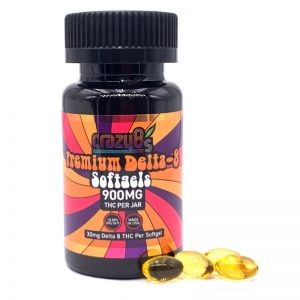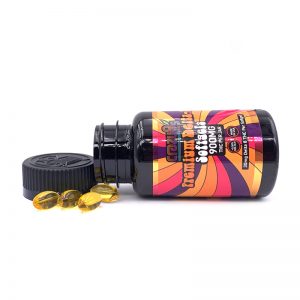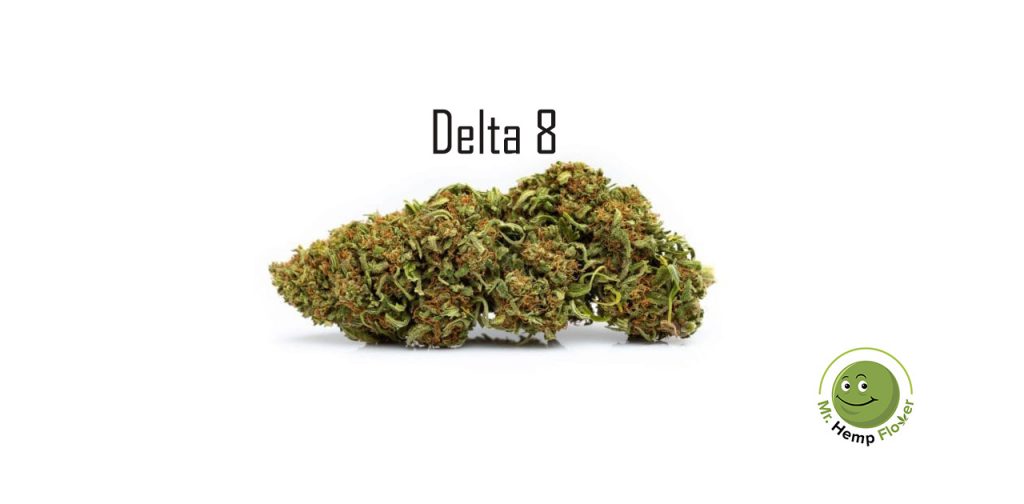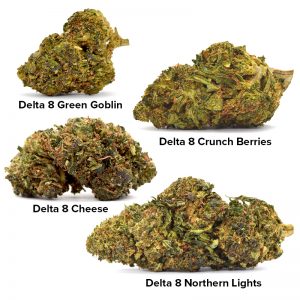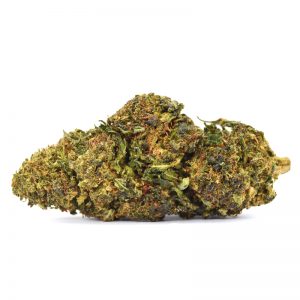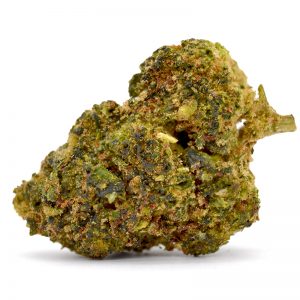Can’t get a good night’s sleep despite trying every remedy under the sun? Delta 8 is here to challenge that.
Long-term sleep deprivation causes detrimental effects on your body. It affects your immunity, memory, concentration, and blood pressure.
With the rise of cannabidiol (CBD), many people started to use cannabinoids to reduce pain and improve sleep. Those who’ve tried delta 8 for sleep say that this cannabinoid ranks high on their list of natural sleep remedies.
Should you try delta 8 THC for sleep? Let’s weigh its pros and cons and its effectiveness on sleep.
Last Update: April 28, 2025
Article Summary
- Delta 8 THC, a mildly intoxicating cannabinoid found in cannabis, is gaining attention as a potential natural remedy for sleep problems.
- Early research indicates that delta 8 may help with relaxation and managing anxiety. As a result, it may contribute to improved sleep quality.
- Delta 8 affects the endocannabinoid system (ECS), which plays a crucial role in regulating sleep and maintaining homeostasis in the body.
- Delta 8 THC may help you fall asleep faster by reducing dopamine levels and promoting melatonin release.
- This cannabinoid has potential analgesic properties and can alleviate pain, the culprit for disrupted sleep patterns.
- Delta 8’s potential relaxing effects can calm racing thoughts and improve sleep quality.
What is Delta 8 THC?
Delta 8 THC is a mildly intoxicating cannabinoid found in both hemp and marijuana. Cannabinoids are chemical compounds unique to the cannabis plant that offer therapeutic effects.
Delta 8 THC is a minor cannabinoid because it’s found in extremely low concentrations (less than 1%) in the hemp plant. For this reason, delta 8 is synthesized from hemp-derived CBD in concentrated amounts.
This cannabinoid has a very similar chemical structure to delta 9 THC or the primary psychoactive compound in hemp. But it’s milder and causes a more mellow intoxication, which can help you wind down faster. Users often report that this cannabinoid doesn’t make them as anxious as delta 9 THC, which may make it beneficial for sleep.
Will Delta 8 THC Help Me Sleep?
According to studies and research articles published in the Journal of Sleep Research, THC shows potential for aiding sleep and sleep disorders.
Let’s look at more studies.
According to an exploratory study published in the Journal of Cannabis Research, 71% of delta 8 THC users experienced relaxation. Users stated that this cannabinoid helped them manage “anxiety and sleep issues,” and 74% of them didn’t experience anxiety after using this compound.
A 2022 study of cannabis oil for sleep (10:15 THC to CBD ratio) showed that it was “well tolerated” by adults with insomnia and proved “effective in significantly improving sleep quality and duration.” The participants noticed an improved quality of life and mood within two weeks of consumption.
Although this study is about medicinal cannabis, delta 8 is very similar to delta 9 THC, which could indicate that it works for sleep.
A 2017 review of several studies published in Current Psychiatry Reports showed that cannabis can help people fall asleep faster and potentially treat REM sleep behavior disorder.
The same review found that consuming too much THC can impair sleep, so it’s important to use it in moderation.
Have You Tried Our Delta 8 THC for Sleep?
At Mr. Hemp Flower, we offer a line of top-shelf delta 8 THC products, including premium indica delta 8 flower. Indica strains are known as more mellow and relaxing compared to sativa strains, so we highly recommend them for sleep.
Our products are made using organic hemp sourced directly from vetted U.S. farmers. Every hemp flower batch comes with a detailed Certificate of Analysis that shows the cannabinoid and terpene content.
Mr. Hemp Flower’s Best Selection of Delta 8 for Sleep
Indica-dominant hybrid with 22% delta 8 THC and 10% CBD. It has a potent cannabinoid profile and exhibits sour, dank, skunk aromas. Ideal for evening or nighttime.
An indica-dominant hybrid with 10% delta 8 THC and 13% CBD. Leans more on the fruity side, exhibiting a berry and herbal aroma and taste. Perfect for the evening and nighttime.
Vegan-friendly, organic gummies available in three doses: 10mg, 20mg, and 50mg of delta 8 per gummy. It’s a great product for both beginners and seasoned users who need the right dose for sleep.
How to Use Delta 8 THC for Sleep
After a long day, wind down with some delta 8 THC. Its sedative and mildly psychoactive properties allow you to experience better sleep without feeling heavy the next morning. Here’s how.
Vaping, smoking, or edibles?
Some people prefer vaping or smoking delta 8 THC over other methods of consumption. This can be particularly useful because inhalation is the most fast-acting method.
Vaping & Smoking
Onset of action: 10-20 minutes
If you are a smoker, try delta 8 THC flower for sleep. There are tons of different hemp flower strains to choose from in various flavors and aromas.
Sativas are known to boost energy, while indicas help racing thoughts and calm the mind. Try Crunch Berries delta 8 hemp flower, an indica-dominant strain, for sleep. It’s designed to help you wind down during the evening or nighttime.
Smoking is not a preferable method of consumption due to its adverse effects on the lungs, but it offers a quick onset of action. When inhaled, the cannabinoids head straight to your lungs, allowing for quick absorption. You should feel the effects within 10 to 20 minutes after the first inhale.
This is a high-potency method that’s difficult to dose, but it works great for sleep because it’s fast-acting.
Edibles
Onset of action: 30 minutes to 1 hour
Edibles, like delta 8 gummies, chocolate bars, and honey sticks, are the most delicious way to consume delta 8 THC. You get the same amount of delta 8 per edible with gummies, so they offer a consistent dose of cannabinoids.
The only disadvantage of this type of consumption is that you need to take them for about an hour before going to bed as they take a while to start working. It takes 30 minutes to an hour (or two) for edibles to kick in. This depends on the person’s metabolism, tolerance levels, and dosage.
Capsules
Onset of action: 30 minutes to 1 hour
Capsules come in a fixed dose and, like gummies, offer a consistent way to take delta 8 before bed. If you have trouble dosing delta 8 products, capsules are perfect. Before using them, you only need to match the dose to your tolerance levels.
Capsules typically contain over 30 mg of delta 8 THC. This may not be suitable for you as a beginner because starting with 5 mg per dose at that stage is best. So, once you establish higher tolerance levels by using, for example, gummies, you can switch to capsules.
Before taking hemp cannabinoids for sleep, please consult your doctor.
This is especially important if you are taking sleep medications because some medications interfere with hemp cannabinoids. Your doctor can help you dose properly and adjust based on the medicine you have been using.
How Does Delta 8 THC Work for Sleep?
Delta 8 THC helps with sleep by influencing the endocannabinoid system (ECS). The ECS is the body’s cell-signaling system that regulates vital functions, including:
- Sleep and maintenance of sleep-wake cycles
- Learning and memory
- Metabolism
- Inflammation
- Chronic pain
- Mood
- Appetite and digestion
- Reproductive system function
According to a study published in the International Journal of Molecular Sciences, the endocannabinoid system helps the body maintain a state of balance or homeostasis. As you may know, sleep is the epitome of homeostasis, essential for survival and well-being.
Research shows that the endocannabinoid system plays a direct role in maintaining sleep and may affect dreaming. The ECS consists of three parts: cannabinoid receptors (CB1 and CB2), endocannabinoids (cannabinoid-like components produced by the body), and enzymes.
The CB1 receptor is one of the ECS’s main cannabinoid receptors located throughout the central and peripheral nervous system. This receptor helps regulate pain, sleep, energy metabolism, anxiety, and appetite.
Scientific evidence shows that the activation of the CB1 receptor leads to an induction of sleep. Delta 8 THC binds to the CB1 receptor, likely activating its sedative properties.
Benefits of Delta 8 THC for Sleep
Let’s look at the potential ways this cannabinoid can help you optimize sleep.
Fall Asleep Faster
Are you tossing and turning every single night? Delta 8 THC may help you combat that restless feeling. This cannabinoid attaches to the CB1 receptors in the brain, responsible for regulating the sleep-wake cycle and winding your body down for sleep.
In mice, very low levels of delta 8 THC caused a significant decrease in dopamine and serotonin. Dopamine release is associated with melatonin production, with low dopamine causing high melatonin release. Melatonin is the “sleep” hormone produced by the body as a response to darkness. Dopamine, on the other hand, is associated with wakefulness.
So, by taking delta 8 THC, your body may produce less dopamine, causing less alertness and higher melatonin release. Thanks to this compound, you may find it easier to fall asleep and develop consistent sleep patterns that restore the balance to your circadian rhythm.
Alleviate Aches and Pains
Anecdotal evidence shows that delta 8 THC helps users fall asleep more easily. They also report staying asleep longer and waking up feeling refreshed.
An important way delta 8 expresses its effects on sleep is through its analgesic (pain-relieving) and anti-inflammatory properties.
According to the Journal of Sleep Disorders and Therapy, the connection between sleep and pain is major — lack of sleep increases the perception of pain. Chronic pain leads to lack of sleep, which is the most frequent complaint of chronic pain sufferers.
Studies show that pain and sensations are drastically reduced during both REM and non-REM sleep episodes. This means that having a good night’s rest is key to relieving pain. However, breaking the pain/lack of sleep cycle is incredibly hard.
Delta 8’s analgesic and anti-inflammatory effects, combined with its sedative properties, may contribute to sound, restful sleep. Studies show that the CB1 receptor plays a vital role in pain regulation because it’s strategically located in the parts of the nervous system that control pain signaling.
One animal study found that delta 8 THC showed pain-relieving and anti-inflammatory effects in mice suffering from pain caused by corneal injury. As we mentioned earlier, delta-8 binds to the CB1 receptor, mediating sleep and pain.
Reduce Anxiety
Lack of sleep makes us groggy and irritated, increases heart rate, and exacerbates anxiety symptoms. On the other hand, anxiety keeps the body and mind alert and unable to relax, which affects sleep.
Delta 8’s anti-anxiety and sedative effects may also help with sleep in people with anxiety. Delta 8 THC doesn’t produce the common anxiety feelings associated with THC and will instead calm racing thoughts and worries.
Improve Sleep Quality
By helping you fall asleep faster and stay asleep longer, delta 8 THC instantly improves your sleep quality. You’ll spend more time in REM sleep when you stop experiencing anxious thoughts, nightmares, and nighttime disturbances. This helps your brain retain memories and information and supports overall brain development.
Tips on Using Delta 8 for Sleep
To achieve the best results, here are some best practices for using delta 8 for sleep:
- Take delta 8 gummies, edibles, or capsules 45 minutes to an hour before going to bed. It takes that long for this cannabinoid to activate and help you transition to sleep when consumed orally.
- Experiment with various consumption methods until you find the perfect combination. If you’re new, you’ll need some time before finding whether you prefer gummies or capsules for sleep. Keep the dosage in mind. If you’re a beginner, you can start with a low-dose gummy, then switch to capsules.
- Some people react better to smoking hemp flower while others love their gummies. Delta 8 flower yields results much faster, so it’s ideal for last-minute situations, like when you’ve forgotten to take your gummy and need to rest.
- Gummies are a great option for users who tend to wake up at night. Depending on dosage, they may take several hours to produce effects. But, they tend to last longer, up to 8 hours.
- If approved by your doctor, you can combine delta 8 products with other natural substances like melatonin. Many companies already make products that combine several cannabinoids for better sleep quality.
- You can also combine delta 8 with other cannabinoids, like CBD and delta 9. This allows you to experience the entourage effect with other hemp compounds, which leads to smoother results.
- If you’re a beginner, start with 5 mg for a couple of days. See how your body reacts to this dosage and how you feel in the morning, and increase from there. Starting with a lower dose makes it much less likely to experience adverse effects. If you’re experienced, you may use close to 50 mg of delta 8 for sleep.
Avoid Using Delta 8 for Sleep Every Night
Last, but not least, take breaks.
Breaks allow your body to adjust to this substance better and prevent tolerance build-up. When you use a cannabinoid frequently, your brain becomes accustomed to its effects, and the cannabinoid becomes less effective.
To avoid tolerance build-up, have a set schedule for using delta 8 for sleep that includes breaks. For example, you can use a low dose of 10 mg to 20 mg per night five days a week and take a break during the weekend.
Or, start with 10 mg of delta 8 on Monday and increase by 2.5 mg every night until Friday. Then, take your break during the weekend and reset the schedule at the start of the new week.
Your body needs up to 48 hours to reset the cannabinoid receptors, so a weekend break will do its job. If you’re sensitive to THC, try microdosing. Here’s more on microdosing delta 8 THC and how to do it right.
Delta 8 vs. Delta 9 for Sleep
If you’re deciding between delta 8 and delta 9 for sleep, here are a few tips to help you out.
- Both delta 8 and delta 9 THC are effective for sleep if used in the right way (consumption method, dosage).
- Delta 8 is the milder THC isomer. It’s much more mellow and sedative and doesn’t exacerbate anxiety symptoms, so it’s a better option for sleep than delta 9.
- In lower doses (5 to 10 mg) delta 9 can also be effective for sleep. The key is to limit the dosage and avoid immediate adverse effects like anxiety and paranoia. It’s important to consume it in low doses to avoid next morning grogginess.
- In high doses, delta 9 can increase your heart rate and energy, making it harder to fall asleep. Microdosing delta 9 is key for better sleep results.
- If you’re sensitive to THC, start with the lowest dose possible (2.5 mg).
Which is Better for Sleep CBD or Delta 8?
If you’re deciding between delta 8 and CBD for sleep, here are a few tips to help you out.
Cannabidiol is Non-Intoxicating
The experience you’ll get when consuming cannabidiol versus delta 8 will be very different. Cannabidiol (CBD) is a non-psychoactive cannabinoid naturally abundant in hemp. Most people tolerate CBD really well and use it to reduce symptoms of stress and anxiety.
Compared to delta 8, which is intoxicating, CBD won’t give you a “high” feeling typical for THC. So, if you’re bothered by the way THC makes you feel, you can try CBD. Keep in mind that CBD has the potential to help with sleep, according to this study, but you still might need something more potent to help you snooze.
Mix CBD and Delta 8 for Sleep
The good news is you don’t have to choose between the two for sleep because you can blend them together. Research is pointing to the benefits of combining cannabinoids for better effects.
While there is no specific research for sleep, using a full spectrum product that blends THC and CBD is a better option than using a CBD isolate.
Delta 8 vs. Sleep Aids: Which is Better?
Choosing between cannabinoids and sleeping medication can be challenging. Here’s how they compare and why pick one over the other.
Delta 8 is a more natural option for sleep than prescription medication. These drugs target the brain’s GABA receptors and promote relaxation and drowsiness. Often, the pros outweigh the cons, as prolonged use of sleep meds may lead to dependence and residual effects that interfere with life.
For some people, delta 8 may be less effective than prescription medications. People with severe sleep issues may need to continue with traditional sleep aids. But, be careful when supplementing prescriptions with delta 8 and do it under the guidance of a doctor. If you start to combine the two, supplement only tiny amounts at first and make sure this cannabinoid doesn’t interfere with the sleep meds you’re taking.
Dosing Delta 8 for Sleep
While you’ll need some trial and error to determine the optimal delta 8 dosage for sleep, here’s where to start.
Baseline Dose
A dose of 5 mg to 10 mg, especially if you’re a beginner, is a great start.
This dose range is considered a microdose. By starting with a microdose, you’ll have control over the adverse effects this substance can cause on sleep. The best way to calculate a baseline dosage is by using this formula:
(0.05) x (your body weight in lbs.)
So, if you weigh 130 lbs, start with 6.5 mg of delta 8 each night.
From there, you can increase your dose gradually and take frequent tolerance breaks to reset your cannabinoid receptors. The amount of delta 8 to take for sleep depends on several factors, including:
- Your metabolism
- Your tolerance to THC
- The consumption method
- Your current health
- The dosing amount
All of these factors influence the way your body will respond to this substance and how effective it will be for sleep. When you start with a low dose, you can track your body’s response to the substance and dose accordingly.
How Long Before Bed Should I Take Delta 8?
You don’t want to wait too long to take delta 8 for the night, but you also don’t want to take it too early. The best way to time it is by considering the consumption method.
Delta 8 flower, pre-rolls, and other smokable products kick in within 10 to 20 minutes after consumption. They assist in falling asleep fairly quickly and are a great product to resort to when you need immediate rest.
With edibles, it’s best to take them an hour or two before going to bed, so make sure to plan accordingly. If you’re a seasoned user, you can take a single 20 mg dose an hour before bed and then follow up with a 10 mg right before going to sleep. This will help prolong the delta 8 buzz and increase the time you stay asleep.
The effects of delta 8 gummies and edibles last for 8 to 10 hours, so it’s important to take them an hour or two before bed. You don’t want to wake up with a delta 8 buzz when you’ve got important things to tackle.
Safety and Side Effects
We need more research on delta 8’s effects in adults, as most of what we know comes from animal studies. One 2018 systematic review found that delta 8 increased heart rate in humans and had the opposite effect on animals, where it slowed heart rate.
Another animal study found that delta 8 and delta 9 THC cause an increase in blood pressure, followed by a sudden drop and a slower heart rate.
Anecdotal evidence of adults who use delta 8 THC in low to moderate doses shows that this cannabinoid doesn’t cause major adverse effects. Before using delta 8 THC for sleep, make sure you check the labs of the products and do a little background check on the company you are purchasing from.
Final Thoughts: Delta 8 for Sleep
Delta 8 THC is a potential natural solution for people with sleep issues. Early research suggests that it may help you relax, manage anxiety, and improve sleep quality by affecting the endocannabinoid system.
Additionally, its anti-anxiety effects can calm the mind, leading to better sleep quality. It’s essential to use delta 8 THC responsibly, as tolerance can develop over time.
Delta 8 THC presents a natural alternative worth considering for those seeking better sleep without the potential drawbacks of prescription sleep medications.
FAQ
What is the difference between delta 8 and delta 9?
The biggest difference between delta-8 and delta-9 is in their psychotropic potency. Meaning, delta-8 will get you a little high without the anxiety effects produced by delta-9.
Does delta-8 help with sleep?
Anecdotal evidence shows that delta-8 helps with sleep.
What are the benefits of Delta 8?
Delta-8 effectively reduces pain, anxiety symptoms, stimulates appetite, and prevents nausea and vomiting.
Is Delta 8 legal?
In the U.S., synthetically produced delta-8 is illegal, while naturally occurring delta-8 is legal.
How long does Delta 8 stay in your system?
In urine, THC’s byproducts can be found from a few days to a few weeks, depending on the frequency of use and metabolism.

